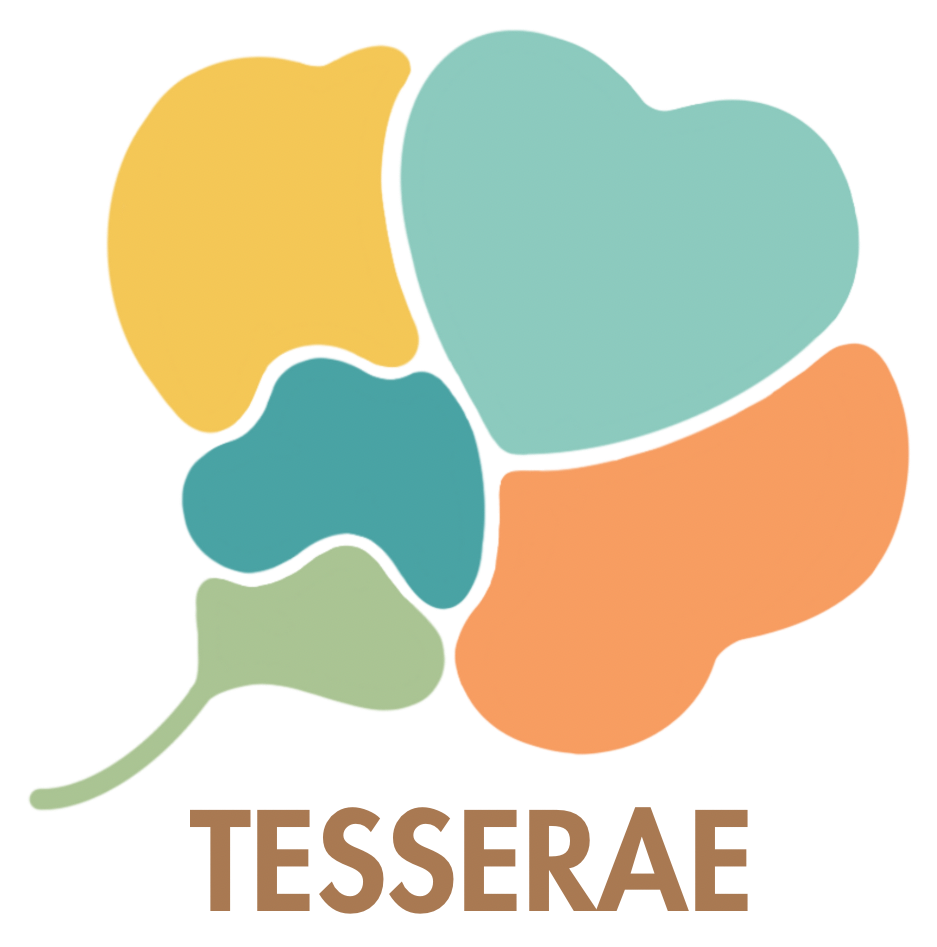When parents first have concerns about their child displaying symptoms of autism, it can feel overwhelming to know where to start an autism test. Do you go straight for a formal diagnosis? Or is there an earlier step?
At Tesserae, our team of specialists understands the concerns you may have, and we’re here to guide you through understanding autism testing and the support options available.
What is an Autism Test in Singapore: Screening Vs Diagnosis
When people talk about an “autism test,” it can mean different things – mainly a screening or a full diagnosis.

What’s an Autism Screening:
- A preliminary check to flag early signs of autism.
- Often done by a paediatrician or trained therapists
- Helps parents know if further assessment is needed and suggestions on next steps
- Can be done in a 2-3 hour session
- Quicker, less intensive, and can provide peace of mind or early guidance
- No formal records of the child’s condition
What’s a Formal Autism Diagnosis?
- A comprehensive legally recognised assessment carried out by a developmental paediatrician, child psychiatrist, or clinical psychologist with expertise in neurodevelopmental disorders..
- Can involve developmental paediatricians, clinical psychologists, and other therapists.
- Examines core areas such as social communication challenges, restricted interests, and repetitive behaviours.
- Usually spread across several sessions for accuracy and to observe your child in different contexts.
- Typically takes several weeks to a few months to receive the official diagnosis, depending on the provider and waiting times
- Required for official recognition, access to early intervention programmes, school accommodations, or government support.
Some families start with a screening if they’re unsure and want an initial sense of whether autism might be present. Others proceed directly to a diagnosis if they’re looking for clarity, access to services, or an official report for school or intervention planning.
Can online autism tests be trusted?
You’ve probably come across various online autism screening tools and questionnaires. While these can be helpful as a starting point, they cannot replace professional assessment. Online tools are essentially screening instruments – they might suggest whether further evaluation is worth pursuing, but they can’t provide a definitive diagnosis and should always be followed up by professional evaluation.
These questionnaires can be useful for documenting concerns before meeting with professionals. However, autism presents differently in each individual, and only qualified specialists can conduct the comprehensive evaluation needed for an accurate diagnosis. If online screening results suggest potential autism traits, the next step is scheduling a consultation with a healthcare professional.
Where to Get an Autism Test in Singapore: Public vs. Private Options
Singapore offers two main pathways for autism assessment: public healthcare and private services. Each option has distinct advantages and considerations regarding waiting times, costs, and accessibility.
Understanding these options helps you choose the most suitable path for your family’s circumstances. Some families prefer the subsidised public route, while others opt for private services to reduce waiting times. Both systems maintain high professional standards and can provide accurate diagnoses.

Autism Test via the Public Healthcare System
The public healthcare system offers excellent value, particularly for Singapore citizens and permanent residents who qualify for government subsidies. However, demand often exceeds capacity, resulting in longer waiting periods that can extend several months.
For Young Children (under 7): KK Women’s and Children’s Hospital (KKH) and National University Hospital (NUH) are Singapore’s primary public options for developmental assessments. Both hospitals have dedicated child development units staffed by experienced specialists.
To access these services, you’ll need a referral from a polyclinic doctor or general practitioner. The referral process typically involves an initial consultation where the GP assesses your concerns and determines whether specialist evaluation is appropriate.
For School-Aged Children (7 and up): The Child Guidance Clinic at the Institute of Mental Health (IMH) serves older children and adolescents. School counsellors can also facilitate referrals through the Community Mental Health (REACH) programme, which works directly with educational institutions.
Autism Test via the Private Healthcare System
Private healthcare offers faster access to assessment services, which can be particularly valuable for early intervention purposes. Most private clinics can schedule initial consultations within weeks rather than months, though costs are considerably higher.
Private clinics often offer more flexible scheduling and may provide additional services like detailed post-diagnosis planning sessions. Some families appreciate the continuity of care that private practice can offer, as the same specialists who conduct the assessment often remain involved in ongoing treatment planning.
The Autism Test Process: What to Expect During the Assessment
In Singapore, autism is diagnosed by a psychologist who has a special interest and expertise in neurodevelopmental disorders. The assessment process is designed to be thorough yet child-friendly. Specialists understand that children may feel anxious in new environments, so they work to create comfortable settings that encourage natural behaviour and interaction.
Each assessment is tailored to your child’s age and developmental level. Younger children might engage in play-based activities, while older children and adolescents may participate in more structured interviews and tasks. The goal is always to observe authentic behaviour rather than performance under pressure.

Assessment Tools Used
Professionals rely on standardised, research-validated tools to ensure diagnostic accuracy. These instruments have been extensively tested and proven reliable for autism assessment across diverse populations.
- Autism Diagnostic Observation Schedule, Second Edition (ADOS-2) This assessment looks like play to children, but it’s actually a carefully structured observation tool. The psychologist presents various activities and social situations whilst observing how your child responds, communicates, and interacts.
- Autism Diagnostic Interview-Revised (ADI-R): This detailed interview focuses on gathering comprehensive developmental history from parents or caregivers. Questions cover early development, current behaviours, and changes over time. The interview typically takes 2-3 hours and provides crucial background information for diagnosis.
At Tesserae, our Clinical Director Dr. Dominic Leong is trained in the Autism Diagnostic Observation Schedule, Second Edition (ADOS-2) assessment. While only psychiatrists and psychologists can issue a formal autism diagnosis in Singapore, Dr. Leong is qualified to do so in other markets, and his expertise ensures that parents receive meaningful guidance at the screening stage
They will then classify autism into three levels based on how much support a person needs:
- Level 1: Requiring Support. People at this level have social communication difficulties and might struggle with social interactions. They can handle changes in routine but might find it hard. They are often able to speak in full sentences and may seem quite smart, but they struggle with conversations.
- Level 2: Requiring Substantial Support. These individuals have more noticeable difficulties with social communication, even with support. They might have a more limited vocabulary or have trouble with back-and-forth conversations. Their routines are very important, and changes can cause a lot of distress
- Level 3: Requiring Very Substantial Support. This is the highest level of support needed. People at this level have severe deficits in both verbal and nonverbal communication. They might have very limited speech or not use it at all. Their routines are extremely important to them, and they might show repetitive behaviours that get in the way of daily life.
Knowing these levels can help you and the professionals you work with figure out the right kind of help for your child.
How Long Does an Autism Assessment Take?
Assessment duration varies depending on your child’s age, cooperation level, and the complexity of their presentation. A complete evaluation typically requires 3-4 hours of direct assessment time, though this is usually spread across multiple sessions to prevent fatigue.
The timeline from initial consultation to final report can range from several weeks to a few months. Private clinics often provide faster turnaround times, whilst public hospitals may require longer due to higher patient volumes. Some assessments may require additional sessions if initial results are unclear or if your child needs time to become comfortable with the assessment environment.

How to Prepare for Your Child's Autism Test
Proper preparation can help both you and your child feel more confident about the upcoming assessment. While specialists are experienced in working with anxious children, your preparation can contribute to a smoother evaluation process.
Gather Your Information: Start collecting relevant information well before your appointment. Create a timeline of your child’s development, noting when you first observed concerning behaviours and how they’ve changed over time. Include details about triggers that seem to worsen certain behaviours and strategies that help your child cope.
School reports, previous medical evaluations, and even video recordings of typical behaviours at home can provide valuable insights. Teachers often observe behaviours that parents might not see, so requesting classroom observations can be particularly helpful.
Prepare Your Child: Use age-appropriate language to explain what will happen during the assessment. For younger children, you might say they’ll be meeting a “special doctor” who wants to play games and do activities with them. Avoid creating anxiety by keeping explanations simple and positive.
Practice some of the activities your child might encounter, such as following simple instructions, playing with toys, or answering questions about their interests. However, avoid over-preparing, as specialists need to observe natural responses rather than rehearsed behaviours.
What to Bring: Pack items that help your child feel secure, such as a favourite toy, snack, or comfort object. Bring any relevant documents, including previous assessments, school reports, and medical records. A change of clothes might be helpful for younger children, and consider bringing activities for waiting periods.
When and how to get an autism test for a child in Singapore?
The best time to seek a diagnosis is usually as early as possible, since research shows that early intervention has a lasting positive impact on a child’s development. But in reality, the timing of a formal diagnosis can also depend on a family’s priorities and the child’s needs.
Typically, many parents get a formal diagnosis before their child turns 6 years old if their child requires admission to a Special Education School (SPED).
Some parents may prefer to move quickly toward diagnosis, especially if:
- They want access to government-funded programmes or have school-based accommodations (e.g. longer time for examinations).
- Their insurance provider requires a formal diagnosis for coverage.
- They need clarity for long-term planning and support at school or home.
Others may prefer to start with screening or intervention without a diagnosis, particularly if:
- They are concerned about the stigma that may still be attached to a diagnostic label.
- Their child is very high-functioning, and parents feel a formal diagnosis may not change the type of support the child receives.
- They want to prioritise immediate strategies for behaviour and learning rather than going through a longer diagnostic process.
At the end of the day, there’s no one-size-fits-all answer. The timing of a formal diagnosis really depends on what is best for the child and family. Many parents find that starting with a screening or consultation gives them clarity without pressure, and allows them to step into a full diagnosis later if and when it feels right.

Autism Test Cost in Singapore: An Overview of Fees
Understanding the financial aspects of autism testing helps families plan appropriately and explore available options. Costs vary considerably between public and private healthcare systems, with several factors influencing final expenses.
Autism Tests at Public Hospitals
Subsidised rates make public healthcare accessible for most Singapore families. Citizens and permanent residents typically pay a few hundred dollars for comprehensive assessment, especially when referred through polyclinics. The exact amount depends on your subsidy level and specific services required.
Medisave can often be used to cover portions of the assessment costs, further reducing out-of-pocket expenses. Some families may qualify for additional financial assistance through hospital social service departments if cost remains a barrier.
Autism Tests at Private Clinics
Private assessment costs typically range from $1,500 to $5,000 for a formal diagnosis. This fee usually includes multiple assessment sessions, comprehensive written reports, and feedback sessions with parents. Some clinics offer payment plans to help families manage these expenses.
Insurance coverage varies depending on your policy specifics. Some private insurance plans may cover autism assessments, particularly if they include mental health benefits. Check with your insurance provider about coverage details and pre-authorisation requirements.
At Tesserae, our 2-hour development assessment (screening) costs $300.
While not a formal diagnosis, the expertise brought by our Clinical Director who is trained in the ADOS-2 assessment allows for meaningful guidance at the screening stage.
After the Diagnosis: What's Next for Your Child and Family?
Receiving an autism diagnosis can evoke mixed emotions – relief at having answers, concern about the future, and uncertainty about next steps. Remember that a diagnosis is actually the beginning of accessing targeted support that can make a meaningful difference in your child’s development.
The period immediately following diagnosis is crucial for establishing support systems and intervention plans. Take time to process the information, ask questions, and connect with resources that can help your family move forward positively.
Read our article on autism to get guidance on the difference between therapies, and how to plan next steps for your child.

Finding the Right Support
Organisations like the Autism Resource Centre (Singapore) offer valuable resources for newly diagnosed families. They provide parent support groups, educational workshops, and connections to experienced families who can share practical advice.
Building a support network takes time, but connecting with other families who understand your experiences can be incredibly valuable. Online communities, local support groups, and autism-focused organisations all offer different types of assistance and understanding.
Disclaimer: This article provides general information about autism testing in Singapore and should not be considered medical advice. Always consult with qualified healthcare professionals for personalised guidance regarding your child’s development and potential need for assessment.
Content
Book a free discovery call with us
